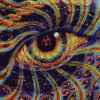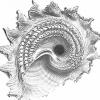
Why do I feel so tired after eating?
#31
Posted 11 February 2013 - 07:01 AM
Here's your best deal on caps w/ the intro $10 off $40 + free shipping with coupon code RJB477: http://www.iherb.com...ules/13484?at=0
#32
Posted 12 February 2013 - 10:47 AM
Also, almost each and every time I go to sleep, if anything wakes me up suddenly my body immediately starts to overheat (not dangerously, just very uncomfortably). My skin feels like it's burning throughout my whole body and I even start sweating sometimes. It almost always happens upon waking, and it's usually when I wake up before I get an adequate amount of sleep. Every once in a while I get a rapid heartbeat along with the high temperature. And all of this usually subsides within 10-15 minutes after I get up and stand in front of a fan to cool off. This happens even in a really cold room at night. It's becoming very annoying because if any small noise or movement happens that otherwise would not bring me to consciousness happens, I cannot keep my body from getting super hot and my mind wakes up like I just had a shot of adrenaline. Does anyone know anything about this? Could it be related to adrenaline sensitivity?
Edited by xeon, 12 February 2013 - 10:49 AM.
#33
Posted 13 February 2013 - 05:09 AM
All of these issues can often be interrelated along the Hypothalamic–pituitary–adrenal axis where there’s a dysregulation of adrenocorticotropic hormone (ACTH), subsequently causing cortisol to spike. Luckily, the release of melatonin by the pineal gland in the absence of light exerts inhibitory effects on ACTH; so supplementing with melatonin and eliminating bright & blue light an hour or so prior to bed are good & often successful starting points.
Depression or high stress can cause complete dysregulation of CRH & ACTH feedback loop, ultimately resulting in continual release of cortisol to exhaustion, perpetuating sleep disorders. In this case, treating insomnia via antidepressant route is a viable option. St. John’s Wort downregulated CRH and ACTH 40-70% in this study: http://www.ncbi.nlm.nih.gov/pubmed/15490333
Besides doing wonders for my depression, I’ve found Perika St. John’s Wort regimen 3x daily with one taken at night to drastically cut cortisol (via drastic reduction in number of grey hairs I was getting) and help with sleep. I also combine it with Snooze-In from Vitamin Shoppe, which has 3mg of melatonin, along with two Magnesium Glycinate. Magnesium Glycinate dissociates into Mg & Glycine, both of which have calming effect. Check out the Solgar brand. They're cheap and highly absorbed, since they use the Albion chelation process.
Also try some good old milk and a few oatmeal cookies prior to bed or if you wake up during the night, as some carbs and tryptophan can also greatly help sleep; and make sure you don't workout within two hours of bed time.
Hope this helps, Xeon. Keep us posted on your progress!
Cited/Further reading: http://www.sleepdex.org/acth.htm
http://en.wikipedia....o;"adrenal_axis
Edited by digik, 13 February 2013 - 05:12 AM.
#34
Posted 13 February 2013 - 06:31 AM
Coincidentally, I've also battled with nighttime sleep disturbances and insomnia. They can often be related to circadian rhythm disorders and/or stress & depression related. Those who have been night owls their entire lives also often seem to be predisposed to worsening circadian rhythm disorders as they age.
All of these issues can often be interrelated along the Hypothalamic–pituitary–adrenal axis where there’s a dysregulation of adrenocorticotropic hormone (ACTH), subsequently causing cortisol to spike. Luckily, the release of melatonin by the pineal gland in the absence of light exerts inhibitory effects on ACTH; so supplementing with melatonin and eliminating bright & blue light an hour or so prior to bed are good & often successful starting points.
Depression or high stress can cause complete dysregulation of CRH & ACTH feedback loop, ultimately resulting in continual release of cortisol to exhaustion, perpetuating sleep disorders. In this case, treating insomnia via antidepressant route is a viable option. St. John’s Wort downregulated CRH and ACTH 40-70% in this study: http://www.ncbi.nlm.nih.gov/pubmed/15490333
Besides doing wonders for my depression, I’ve found Perika St. John’s Wort regimen 3x daily with one taken at night to drastically cut cortisol (via drastic reduction in number of grey hairs I was getting) and help with sleep. I also combine it with Snooze-In from Vitamin Shoppe, which has 3mg of melatonin, along with two Magnesium Glycinate. Magnesium Glycinate dissociates into Mg & Glycine, both of which have calming effect. Check out the Solgar brand. They're cheap and highly absorbed, since they use the Albion chelation process.
Also try some good old milk and a few oatmeal cookies prior to bed or if you wake up during the night, as some carbs and tryptophan can also greatly help sleep; and make sure you don't workout within two hours of bed time.
Hope this helps, Xeon. Keep us posted on your progress!
Cited/Further reading: http://www.sleepdex.org/acth.htm
http://en.wikipedia....o;"adrenal_axis
Thanks so much for this info. I think this is directly targeting my problems. I have melatonin but I am worried about taking it because I've read it can worsen depression.. but maybe I should just try it anyway and see what happens. I've never heard of any detrimental damage done from taking melatonin. I will update later!
#35
Posted 13 February 2013 - 07:59 PM
Melatonin is virtually non-toxic, some people tried to suicide by ingesting 50mg and they failed at it.Coincidentally, I've also battled with nighttime sleep disturbances and insomnia. They can often be related to circadian rhythm disorders and/or stress & depression related. Those who have been night owls their entire lives also often seem to be predisposed to worsening circadian rhythm disorders as they age.
All of these issues can often be interrelated along the Hypothalamic–pituitary–adrenal axis where there’s a dysregulation of adrenocorticotropic hormone (ACTH), subsequently causing cortisol to spike. Luckily, the release of melatonin by the pineal gland in the absence of light exerts inhibitory effects on ACTH; so supplementing with melatonin and eliminating bright & blue light an hour or so prior to bed are good & often successful starting points.
Depression or high stress can cause complete dysregulation of CRH & ACTH feedback loop, ultimately resulting in continual release of cortisol to exhaustion, perpetuating sleep disorders. In this case, treating insomnia via antidepressant route is a viable option. St. John’s Wort downregulated CRH and ACTH 40-70% in this study: http://www.ncbi.nlm.nih.gov/pubmed/15490333
Besides doing wonders for my depression, I’ve found Perika St. John’s Wort regimen 3x daily with one taken at night to drastically cut cortisol (via drastic reduction in number of grey hairs I was getting) and help with sleep. I also combine it with Snooze-In from Vitamin Shoppe, which has 3mg of melatonin, along with two Magnesium Glycinate. Magnesium Glycinate dissociates into Mg & Glycine, both of which have calming effect. Check out the Solgar brand. They're cheap and highly absorbed, since they use the Albion chelation process.
Also try some good old milk and a few oatmeal cookies prior to bed or if you wake up during the night, as some carbs and tryptophan can also greatly help sleep; and make sure you don't workout within two hours of bed time.
Hope this helps, Xeon. Keep us posted on your progress!
Cited/Further reading: http://www.sleepdex.org/acth.htm
http://en.wikipedia....o;"adrenal_axis
Thanks so much for this info. I think this is directly targeting my problems. I have melatonin but I am worried about taking it because I've read it can worsen depression.. but maybe I should just try it anyway and see what happens. I've never heard of any detrimental damage done from taking melatonin. I will update later!
Melatonin is used in doses around 100mg in cancer patients and one guy who had a rare disease called FFI took 2000mg of melatonin to cure his symptoms.
Yes it can cause depression because it will lower your dopamine (it inhibits D2), it might also make you drowsy in the day if you take high doses.
Manufacturers sell between 3-5mg of melatonin but studies have shown that no more than 500mcg is needed, taking 3mg won't bring more benefits.
There's a natural way to synchronize your body's melatonin secretion.
Set up an hour to go to bed and one to wake up.
Go to sleep at this hour you choose, then put the alarm for the wake up hour, during this time do not expose yourself to light whether it is a lamp or your phone, if you can't sleep you may wake up but without turning on any lights.
then when the alarm clock rings you have to force yourself to wake up no matter how much hours you slept then expose yourself rapidly to bright natural sun light (if there's any).
do that every day and in about 3-5 your body will be synchronized and go to sleep.
#36
Posted 14 February 2013 - 04:45 AM
Melatonin and dopamine seem to have a very complex relationship in different areas of the brain, and that understanding continues to evolve; but it generally looks like Dopamine is inhibited in the neuroendocrine areas of the brain, including the ventral hippocampus- an area responsible for reward and emotion, while unaffected in the cerebral cortex, cerebellum, dorsal hippocampus or striatum
At the pineal gland, dopamine binding antagonizes the release of melatonin to prevent sleepiness during the day, and in the sensorimotor area of the striatum, melatonin has been shown to attenuate neuronal excitatory response. On the other hand, melatonin has also been shown to have neuro-protective effect against dyskinesia from anti-psychotics and at D2 receptors in Parkinson's disease . Additionally, Melatonin has been shown to be a powerful anti-oxidant, induce youthful gene expression, and have anti-depressant effect via Serotonergic mechanisms.
All that said melatonin certainly comes off as a double edged sword, and based on Renr's contribution about its action on Dopamine, which prompted me to take an indepth look at Melatonin's effects on DA pathways, I might reconsider continuous use myself.
I hypothesize the reason many people don't report problems taking larger doses is most likely due to the poor oral availability of melatonin (15%), short half-life, and once-a-day doses versus chronic mega-doses often used in animal studies. The depression anecdotes usually correlate with higher doses, so if you stick to 1mg of melatonin, you'll end up with about 150 mcg circulating in your blood -- still somewhat more than the endogenous 5-25 mcg levels, but you could always split the tablet.
All that said, I still think melatonin has a lot of value for short term use for circadian rhythm disorders. If you're not experiencing problems getting to sleep at night, i.e.: delayed onset sleep disorder insomnia, but rather the cortisol-induced awakenings, you might just want to skip it in favor of Mag glycinate & SJW.
Xeon, it doesn't look like you mentioned it earlier, but your last post seems to imply you might suffer from some depression?
Cited:
Melatonin–Dopamine Interactions: From Basic Neurochemistry to a Clinical Setting
Feel Good Brain Chemical's Role In Sleep
Melatonin's Role in Sleep Regulation
The absolute bioavailability of oral melatonin.
Inhibition of dopamine release by melatonin: regional distribution in the rat brain
Melatonin-dopamine interaction in the striatal projection area of sensorimotor cortex in the rat.
Effect of Chronic L-Dopa or Melatonin Treatments after Dopamine Deafferentation in Rats: Dyskinesia, Motor Performance, and Cytological Analysis
Melatonin reduces the neuronal loss, downregulation of dopamine transporter, and upregulation of D2 receptor in rotenone-induced parkinsonian rats
**Apologies for the multiple edits for clarifity.
Edited by digik, 14 February 2013 - 05:43 AM.
#37
Posted 14 February 2013 - 07:46 AM
Digik: Yes, I do struggle with depression from time to time. It seems to be out of my control completely, because I consider myself a pretty positive person. It's stress that throws me into a depression, and each and every time I lose quality sleep and feel very tired during the day even when I -think- I've had adequate sleep. =/
#38
Posted 14 February 2013 - 10:14 PM
#39
Posted 14 February 2013 - 10:35 PM
Completely empathize with what you've experienced, Xeon. Quality sleep was a huge issue for me when I was dealing with a lot of stress and subsequent depression. You should definitely check out Perika or Kira St. John's Wort for anti-depressive & anti-cortisol effect , do what you can to implement good sleep habits preveiously mentioned, and Mag + .5-1mg of melatonin an hour before your target sleep time if you need extra help.
Gonna do all of this. Hopefully it helps me out! I won't know how to repay you if this works for me.
#40
Posted 14 February 2013 - 11:28 PM
Eat clean and heathy with lower fat and you won't get lethargic.
#41
Posted 15 February 2013 - 03:56 PM
If your problem isn't with going to sleep then melatonin won't help you.
Try glycine, glycine increases extracellular serotonin and has been shown to put you in a sound sleep.
#42
Posted 15 February 2013 - 05:05 PM
Whenever I eat a fat-ass omelette topped with cheeses of all kinds, I feel absolutely fine and can function perfectly well afterwards, maybe with 5 minutes of mild lethargy. However, an egg sandwich or a bowl of pasta would have me zombified for hours. Try eating an atypically allergenic fat source (for example some nuts, or a load of avocados) and see if you get tired for any length of time comparable to a carb heavy meal.
The dogma of fat=bad, carbs=good is slowly being ripped apart by its manipulative and treacherous roots. There is much to be said on the subject, and there are great forces that seek to quell the dissemination of reliable and accurate information on the subject. If you ever care to seek the truth of the matter, we've always got the internet
#43
Posted 15 February 2013 - 07:37 PM
Try glycine, glycine increases extracellular serotonin and has been shown to put you in a sound sleep.
Exactly why I thought the Magnesium Glycinate would work well for Xeon. Mag Glycinate dissociates into its respective constituents, and both have a calming, inhibitory effect with the added benefit of Mag's cortisol reducing effect (one among many of the widely known plethora of benefits). Given that most people are deficient, Mg supplementation is a win-win for most people.
#44
Posted 16 February 2013 - 12:41 AM
I agree with viveutvivas, too much fat whether healthy or not could make you lethargic due to increased serotonin, maybe you should take them at night.
I don't really think I have too much serotonin release, lol. I may be wrong, but I just doubt it because I have problems staying asleep and sometimes I have problems even going to sleep. When I eat a meal that makes me really lethargic, I still have a hard time going to sleep despite the enormous fatigue. But I can see why you would say that, though.
So far what I know for sure is: when I sleep deeply for at least 7-8 hours without interruption and at night in complete darkness I have better energy and it lasts throughout the day. When I stay away from carbs I have more energy and less fatigue. This has greatly increased my quality of life since I joined this forum
Edited by xeon, 16 February 2013 - 12:41 AM.
#45
Posted 16 February 2013 - 01:48 AM
Highly recommended & cheap Mg Glycinate:
http://www.iherb.com...0-Tablets/14617
#46
Posted 16 February 2013 - 04:10 AM
Here's another one to consider, and Im guilty of it too: foods like spinach (I think you had mentioned) and eggs have some of the highest levels of trytophan per serving. You could roll over to nutrtiondata.com and check your diet against the tryptophan list.
Highly recommended & cheap Mg Glycinate:
http://www.iherb.com...0-Tablets/14617
Oh, sweet website. I just checked spinach on there and it doesn't say anything about tryptophan being in spinach? Coincidentally, I just made a huge green smoothie with lots of spinach, haha. Thanks for the link to the Mg Glycinate. If I order any, I will purchase it from there. I think I am coming to the conclusion that the main cause of my daytime fatigue is poor sleep and a dysregulated HPA-Axis.
#47
Posted 16 January 2014 - 11:49 AM
My doctor has considered a few possibilities (celiac, diabetes, gut hormone balance, dumping syndrome, etc.), but I still remain undiagnosed and it is very debilitating. I have wondered whether some enzymes may be lacking, or candida may be overgrown in the gut.
I am 48 years old and I think that this problem has been with me for about 5 years, but has been most pronounced during the last 2 years.
I would like to hear how it all worked out for Xeon, and if he found a way of overcoming his symptoms.
Milk
Edited by Milk, 16 January 2014 - 11:50 AM.
#48
Posted 16 January 2014 - 12:12 PM
I don't know how much this will help you, Milk, but this is what happened with me. I completely stopped drinking caffeine which enhanced my sleep greatly (I had caffeine almost all day before). I started adjusting to the changes I had in my life with my family situation and learning to deal with issues better, such as things that made me anxious and depressed. I started seeing a therapist (and still do, which is great) to help learn to cope with things. I got on a much better sleep schedule and sleep for a longer duration throughout the night: 7-8 hours instead of broken intervals of 3-4 hours. I stopped eating so much every day -- smaller meals. I didn't necessarily change what I eat, just less of it. And yes, I'm never as satisfied as I used to be, but I've adjusted to it so I can satisfy my hunger and move on without craving more. Only bad part about that is I'm really skinny with a fast metabolism so I don't gain any weight, haha!
After having made these changes for probably 6-7 months, I started noticing that I had much more energy throughout the day and could think much more clearly. I feel more energetic and motivated now, and have more control over my life, although it's by no means where I want it to be yet. I can attribute the primary reason for feeling much better daily to getting better sleep on a regular basis for the most of the past few months. Second most important thing I would say is eating less. Still to this day if I eat a large meal, I will feel really drowsy and lazy and loopy within just a few minutes after eating it. This is good for eating my supper at night as it promotes relaxation -- but I can't do that during the day. I've found eating small snacks all throughout the day is the best option. I can eat a bag of popcorn with no problems, or a protein bar, or a small microwavable meal, etc. Instead of very large meals, smaller meals throughout the day basically. Those 2 things have changed how I live every day and I feel much better now.
I'm leaving out all the psychological changes I've made in terms of how I view my life because that's every person's quest to figure out on their own. That was the first and foremost thing I had to fix before I could change anything else, but the actual fatigue after eating was alleviated a great deal by fixing my sleep schedule and eating smaller meals. If you have any more questions feel free to ask me here or PM me.
#49
Posted 23 April 2014 - 05:07 AM
You're tired from inflammation to the hypothalamus and glucose. Both inhibit orexin neurons.
http://selfhacked.co...n-enough-sleep/
#50
Posted 24 April 2014 - 07:43 AM
I have the same issues like you. Its your mucosal barrier isnt well functioning. This has a bunch of consequences like food-intolarances, fatigue, swinging bloodsugar, physical stress(it brudens everytime your body), not normal functioning immunesystem and metabolism problems like disturbance of utilization of carbohydrates.
your major source of energy should be fat, like:
coconutoil and butter
reduce drastically the amounts of carbohydrates:
no sugar
the carbohydrates you eat should be complex and or resistant.
especially grains with gluten should be excluded
You should eat 4 than 3 meals per day. One meal should be smaller by a little. Eat them regularly, so with a constant timeduration between them like 4 hours or smth like that.
Most the diet should be vegetables, legumes and fish. Nuts for snacking (dont overdo them), water and tea for drinking.
And Cohen is right its an inflammation. But more of mucosal barrier line of the intestinal tract. And whats happing is that a "leaky gut" leads to a "leaky brain". The problem is thats not a real location limited inflammation, more systemic and your blood-brain-barrier is from this affected too. Everytime you eat something "heavy" it will trigger a big cascade of inflammation-related cytokines throughout your body.
Only with discipline is this correctable. But discipline here, leads to "fast" results. And when you eat something "heavy" the consequences are not so dramatic like before. But beware if you eat shit regularly again, it all goes faster backward than forward!
You will sleep better. AND you should do it. exercise is also a big help.
I have found out thats at least partially a cox2-triggered inflammation. Before taking painkillers, ginger did the job for me too!
Two slices of them putting in my mouth at my cheeks as soon as i finished with eating and my fatigue resolves in minutes ![]()
Edited by scitris, 24 April 2014 - 08:06 AM.
#51
Posted 15 October 2022 - 09:15 PM
Also, almost each and every time I go to sleep, if anything wakes me up suddenly my body immediately starts to overheat (not dangerously, just very uncomfortably).
vitamin c helps with overheating but keeps your temperature stable
Also tagged with one or more of these keywords: food, tired, lethargy, caffeine, eating, fatigue, mild stimulant
0 user(s) are reading this topic
0 members, 0 guests, 0 anonymous users



















































